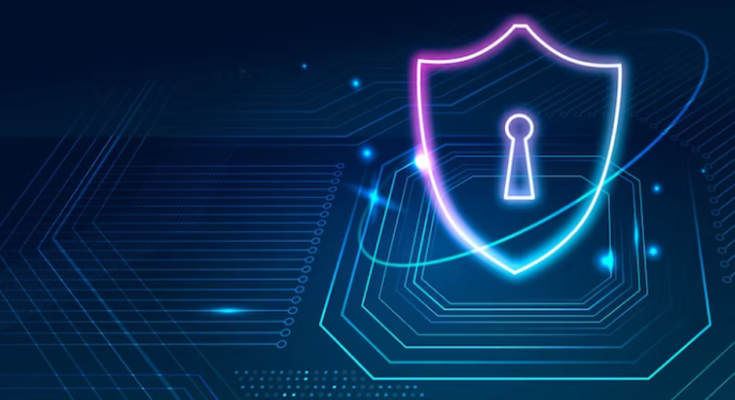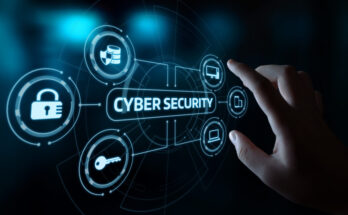Have you ever wondered how secure your company really is when half your team works from home, and the other half logs in from coffee shops, airports, or shared spaces? The convenience of remote and hybrid work has redefined productivity — but it has also opened new doors for cybercriminals.
From phishing emails disguised as HR updates to malware hidden in collaboration tools, threats are now more sophisticated and widespread than ever. In 2025, cybersecurity isn’t just about protecting servers; it’s about safeguarding people, devices, and data across countless virtual locations.
To stay ahead of these evolving risks, every organization should consult with the best cyber security company in India for building a proactive approach.
Let’s explore some essential cybersecurity strategies that can help protect remote and hybrid teams.
1. Strengthen Endpoint Security
When employees work remotely, their laptops, smartphones, and tablets become the first line of defense. Unfortunately, they’re also the easiest targets for cybercriminals.
Endpoint security involves protecting all devices connected to your network — whether in the office or halfway across the world.
Tips for strong endpoint protection:
- Use multi-factor authentication (MFA) for all logins.
- Keep operating systems and antivirus software updated automatically.
- Encrypt all devices to prevent data leaks if they’re lost or stolen.
- Implement remote wipe capabilities for compromised systems.
For companies managing hundreds of devices, endpoint management tools can automate updates and security patches, minimizing risks from human error.
2. Implement a Zero-Trust Framework
The old concept of “trust but verify” no longer works in today’s distributed work environment. A Zero Trust model assumes that every user, device, and network connection could be compromised — and therefore, must be verified continuously.
Here’s how organizations can apply Zero Trust principles:
- Authenticate users at every access point.
- Limit access based on job roles and responsibilities.
- Monitor all activities across devices and apps for unusual behavior.
- Use micro-segmentation to isolate critical systems from general access.
This approach minimizes the damage even if one part of the system is breached, making it a must-have for remote and hybrid workplaces.
3. Educate Employees Through Continuous Training
Human error remains one of the biggest causes of cybersecurity incidents. A well-trained team can often be the difference between a near miss and a major breach.
Conduct regular awareness programs covering:
- How to identify phishing emails and malicious attachments.
- Safe browsing habits and password management practices.
- The importance of using secure Wi-Fi and VPNs while working remotely.
- Immediate steps to take if they suspect a cyber threat.
Cybersecurity isn’t just an IT department’s responsibility; it’s a shared culture across the organization. When employees become cyber-aware, the overall risk reduces significantly. The top cybersecurity company in India will help to train your organization’s employees regarding various cyber security approaches and challenges.
4. Secure Cloud-Based Collaboration Tools
Hybrid teams rely heavily on cloud-based applications like Google Workspace, Microsoft Teams, Slack, and project management tools. While these enhance collaboration, they also introduce security risks if not configured properly.
To keep your cloud environment safe:
- Use role-based access control (RBAC).
- Enable encryption for files in transit and at rest.
- Regularly review and revoke access for inactive users.
- Audit third-party app integrations for potential vulnerabilities.
Cloud providers offer strong native security features — but businesses must configure and monitor them diligently.
5. Backup and Disaster Recovery Planning
Data loss can cripple operations, especially in a distributed work model. Every business should have a disaster recovery plan that ensures minimal downtime in case of a cyberattack.
6. Regular Security Audits and Compliance Checks
Even with the best tools, cybersecurity requires continuous vigilance. Regular audits help businesses identify weak spots and improve defense mechanisms.
Ensure your organization complies with the latest standards such as ISO 27001, GDPR, and SOC 2 depending on your industry and region. If required, consult with the best IT company in India for a detailed audit.
Conclusion
Remote and hybrid work are here to stay; but so are the cybersecurity challenges that come with them. The key to protecting your organization lies in a blend of technology, training, and trust, backed by expert guidance.
Partnering with a reliable cybersecurity specialist can make all the difference. Grizon Tech, recognized as one of the best cyber security companies in India, delivers customized security solutions designed for modern workplaces. With advanced tools, strategic frameworks, and a people-first approach, we ensure your business stays protected in an increasingly digital world.
Whether you are a growing startup or an enterprise, safeguarding your data should never be optional. Choose expertise. Choose resilience. Choose us, and stay one step ahead of cyber threats.




